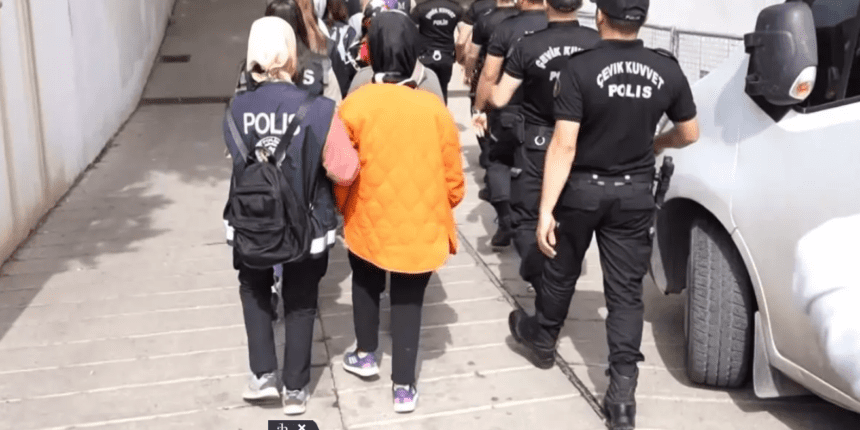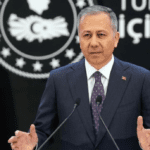The number of people detained this week in a nationwide crackdown on alleged members of the faith-based Gülen movement has risen to 320, with most detainees being university students and recent graduates, according to defense lawyers and local sources.
The operation, led by the Gaziantep Chief Public Prosecutor’s Office and announced Tuesday by Interior Minister Ali Yerlikaya, initially targeted 208 individuals across 47 provinces. Since then, the number has grown to 320, with detainees transported to the Gaziantep Police Department for interrogation and preliminary testimony to prosecutors beginning Thursday.
Interrogation records show that authorities are questioning suspects over lawful and constitutionally protected activities. These include attending certain high schools, universities, or tutoring centers; staying in specific dormitories; obtaining a driver’s license or passport; or participating in overseas educational camps — often in countries such as Bosnia, Albania, and North Macedonia. None of these activities are illegal under Turkish law.
Authorities have also asked about the use of encrypted messaging apps such as Signal and Jitsi, ownership of cryptocurrency wallets, and whether detainees made donations using religious terms such as zakat, infak, or himmet — long-standing Islamic practices now routinely cited in terrorism financing investigations.
One question reportedly asks whether the detainee wishes to invoke Article 221 of the Turkish Penal Code — the so-called “effective remorse” clause — which offers sentence reductions in exchange for confessions and cooperation.
Human rights advocates and opposition politicians have denounced the operation as another example of the government using anti-terror legislation to criminalize dissent. “In this country, traveling abroad has become a crime!” said DEM Party MP and rights activist Ömer Faruk Gergerlioğlu in a statement. “Going on a tourist trip has become a crime. Where are you trying to drive these young people?”
The Gülen movement — once allied with the ruling AKP — was officially designated a terrorist organization in 2016 following a failed coup attempt. Its leader, Fethullah Gülen, who died in exile in the United States in October 2023, consistently denied any involvement in the coup or in terrorism.
According to Justice Minister Yılmaz Tunç, more than 705,000 people have been investigated for alleged links to the movement since 2016. As of mid-2024, 13,251 people remained in prison either awaiting trial or serving sentences related to these cases — numbers that have likely grown amid ongoing arrests.
International watchdogs have long warned that Turkey’s counterterrorism laws — particularly Law No. 5651 — are overly broad and frequently used to suppress civil society, free speech, and political opposition.
Despite being a member of the Council of Europe and a signatory to the European Convention on Human Rights, Turkey continues to face widespread criticism for its use of preventive detention, mass trials, and prolonged judicial processes in politically sensitive cases.



